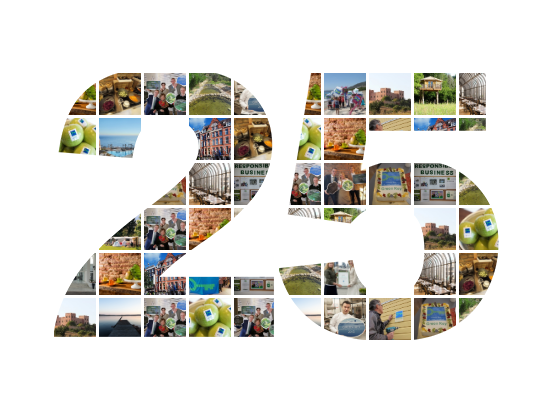This year Green Key celebrates its 25th years anniversary. Initally launched in Denmark, today it has around 3,000 awarded establishments in almost 60 countries worldwide and is the global leading eco-label for hotels and other tourism facilities.
In 1994, the Green Key programme was invented by the Danish Hotel & Restaurant Association (HORESTA) together with other partners. The programme was inspired by the successful Blue Flag eco-label for beaches, marinas and boats.
The support from Danish authorities to Green Key as well as the increased focus on environmental issues globally assisted in making the Green Key programme known in Denmark.
From 1998, the founders started exporting the concept to other countries and France became the first country to introduce Green Key in 1998, and the programme quickly spread to other countries including Greenland, Sweden and Estonia.
Since 2002, Green Key the programme has been administered by the Foundation for Environmental Education (FEE) and its national member organisations, while the decisions regarding the development of the programme are taken by a Green Key International Steering Committee composed of the founders and FEE.
Through FEE’s membership network, Green Key was introduced in a range of countries. In 2007, an existing Dutch eco-label joined forces with Green Key, and since 2010, Green Key has been working closely together with international hotel chains: Radisson Hotel Group, Starwood Hotel Group (now part of Marriott International), Best Western and recently the NH Hotel Group.
Radisson Blu Hotel Astorija, Vilnius, Lithuania
Green Key was first started for hotels and a few other categories, but is today eligible for hotels & hostels, campsites & holiday parks, small accommodations, restaurants, conference centres and attractions. Detailed information about criteria as well as the standardised annual application, audit and award process is available on the Green Key website.
Finn Bolding Thomsen, International Director says: “Today, Green Key has around 3,000 awarded establishments in almost 60 countries worldwide making it the leading eco-label for hotels and other tourism facilities worldwide. Besides our continued focus on quality and quantity, the programme is developing tools to measure the effect of the programme and to support the applicant and awarded establishments in their sustainability work.”
Green Key is recognised by various UN organisations, Global Sustainable Tourism Council (has recognised the Green Key hotel & hostel criteria) and Green Key has partnered with various businesses, tour operators and a range of online booking and travel agencies.
Kirsten Munch Andersen, Political Director at HORESTA says: “Green Key is created in a joint venture between environmental organisations, the tourism industry and public institutions and it is based on a pragmatic and trustworthy Danish model. We have created a unique non-profit environmental certification which focuses on the collaboration between the involved establishments in a pace where the establishment itself sees the rationale in taking the lead.”
There is more information about the start of Green Key in Denmark in a publication developed by HORESTA called ‘From a Basement to the World – the story of Green Key’.


